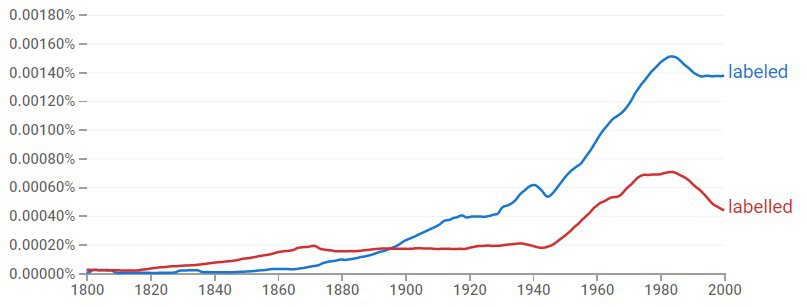In American English, label makes labeled and labeling, with one l. In Canada and in varieties of English from outside North America, the preferred forms are labelled and labelling.
The distinction extends to labelers and labellers. Label has no other dictionary-recognized derivatives, so there are no exceptions to worry about.
The single-l spelling is well established in American English (in contrast to the single-l spellings of the derivatives of cancel, which are still new). American writers adopted the newer forms around 1900, and labelled and labelling are now scarcely seen in American publications. This ngram renders the story visually, graphing the use of labeled and labelled in a large number of American books, magazines, and journals published from 1800 to 2000:
Examples
U.S.
But it also labeled one broadcaster, CBS, as “failing.” [New York Times]
It concludes that the proposition on the November ballot to require the labeling of genetically engineered foods would cost the food industry more than a billion dollars. [Los Angeles Times]
If you’d rather categorize yourself as a labeler, has Google compromised the concept too much with this step? [Washington Post]
Outside the U.S.
In France, wine labelled “chateau” is associated with a product entirely made from grapes grown on a “terroir”. [Telegraph]
She views everyday objects with an anthropological dispassion, labelling and describing each like artifacts in a museum. [National Post]
Irish workers in Christchurch feel they have been unfairly labelled as drunks. [Stuff.co.nz]

Comments are closed.